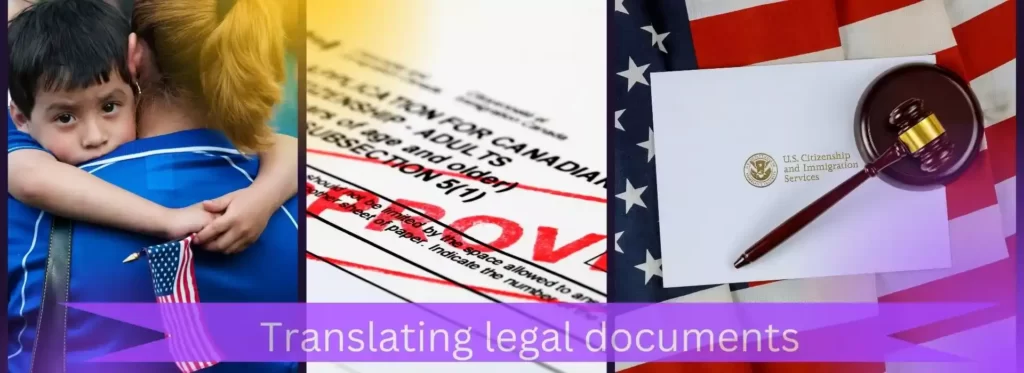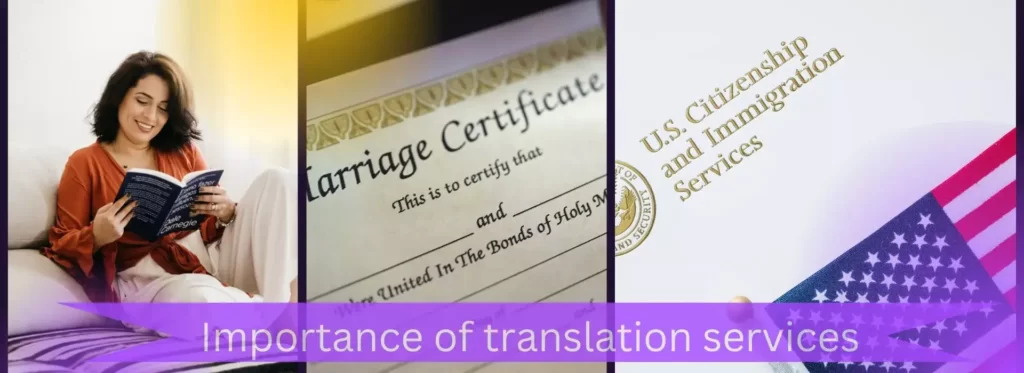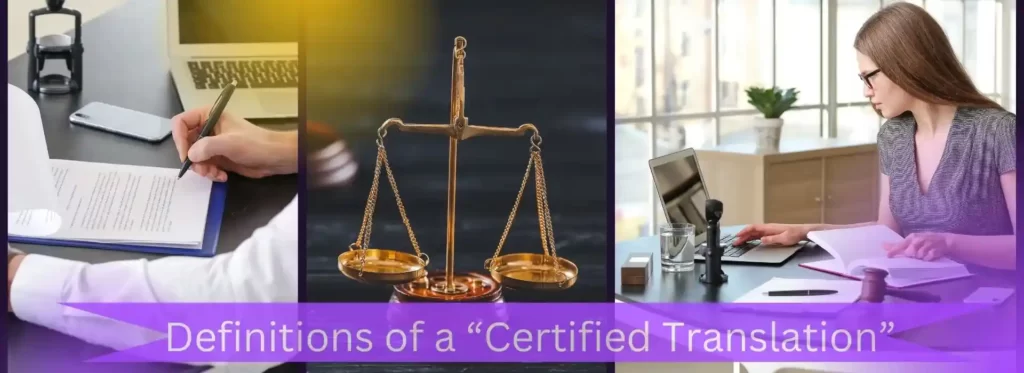Translating legal documents into another language is more complex and jargon-heavy compared to a simple language-to-language translation than you think. Not all legal documents are used in courts. There are some instances where legal document translations are required in documents such as terms & conditions, business contracts, and many more.
Accuracy is crucial when it comes to translating legal documents as well. It needs to have the exact same meaning as even minor changes could have potentially catastrophic consequences and could seriously damage Translating legal documents into another language is more complex and jargon-heavy compared to a simple language-to-language translation than you think. Not all legal documents are used in courts. There are some instances where legal document translations are required in documents such as terms & conditions, business contracts, and many more.
This is why choosing a professional global language company with expertise in legal translations and qualified legal translators is necessary. Having a legal academic background and in-depth knowledge of both the target country’s legal system and the legal system that the original document was intended for is very important as well. Hiring a translator who is not experienced in legal document translation can not only cost you both time and money but also leave you in serious legal trouble.
Before getting any of your legal documents translated, check out these five things you need to know about legal translation:
What is Legal Translation?
Legal translation comprises a wide range of documents related to law. As mentioned above, this type of translation is more complicated than “standard” translation, which typically refers to straightforward documentation such as technical manuals.
Legal document translators must have expert knowledge of the subject matter as well as a thorough understanding of both the source and target languages’ laws to avoid inaccurate translations. Some legal documents include contracts, deeds, patents, litigation documents, wills, immigration papers, legal rulings, financial documents, letters of credit, legal correspondence, transcripts, affidavits, etc.
Most businesses require legal translation for a number of purposes. If you intend to sell goods in another country, for instance, then you must understand that country’s laws about the sale of goods, importing, taxes, etc. Another example is developing a partnership with an investor from abroad, where he or she may prefer to review your patent in his or her native language.
There are two basic processes for the translation of legal content:
- Standard legal translation. This is where a translator performs the translation with a legal background and legal translation expertise, and the content is then thoroughly reviewed by a second legal translator.
- Translation with the legal review. This procedure involves a lawyer’s legal review after the standard legal translation has taken place. The lawyer verifies if the translated content is correct for the local market and makes the appropriate suggestions.
In addition, legal translation usually requires either a certified or notarized translation. A certified translation means that the translator has provided a signed statement that the translation is accurate. It then becomes a legal record once a translation is certified.
The following are examples of areas where the certified translation is needed:
Government Agencies
These include any document submitted to a legal or government body:
- death certificates
- application letters
- adoption agreements
- technical patent confirmation
- wills and testaments
Immigration
Certified translations are the standard USCIS requirement for all immigration purposes in the United States. Hence, all applications for residency or temporary visitor’s permit (or visa) in a foreign country usually require that all submitted documents be in the country’s official language, including:
- birth certificates
- driver’s licenses
- immigration documents
- marriage certificates
Court Documents
For legal paperwork, certified translations are a requirement most of the time, like documentation used in trials or hearings, including:
- evidence documents
- witness statements
- court transcripts
- litigation materials
- deposition records
Translating legal documents
Business and Corporate Dealings
Typically, certified translations are needed for corporations with multiple international offices or looking to increase their visibility globally. Business-related documents usually require certified translation such as:
- financial reports
- legal disclaimers and terms of service
- bank deposits
- patent filings
- business contracts
- corporate & government proposals
- financial statements
- confidentiality agreements
Businesses seeking to hire foreign applicants may require certified translations of specific documents from their candidates, which include:
- passports
- visas
- bank statements
- medical records
The translation is Different From the Interpretation
Interpretation and translation may be confusing for some, but they differ in many ways. Translators work on the written text for both the original and target language, while interpreters deal with oral or signed language translation into a different spoken or signed language, which takes place in real-time. Credentials differ for both of them as well.
On the other hand, both translation and interpretation are language-based industries and they are similar in a way that they both have the same goal- that is, for the original text’s content, tone, and style to remain similar and accurate in the target language.
A business needs to make sure whether a translator or an interpreter is the one you need.
Legal Translation is Not the Same as Any Other Type of Translation
As mentioned above, this type of translation is more challenging than “standard” translation, which typically refers to straightforward documentation such as technical manuals. Don’t forget to add the cultural and geographical differences of the target language or country, and you can see how difficult legal translations can be.
This is because legalese is complicated with specific terminology. Unlike other forms of business papers, legal documents have precise and unique terms, and translation agencies with certified legal translators require translating the legal concepts accurately into a particular language for it to be legally binding.
Moreover, they cannot stop at just replacing words since the legal document usually has various meanings behind a particular choice of word. Misinterpretation and uncertainty can contribute to the nullity of a certain legal document. Even a single, minor error can also lead to costly consequences.
When it comes to writing legal text in English, legal documents are usually long and written in compound sentences. They are also frequently presented in the passive voice. However, keep in mind that in some cases, active voice can be used in specific languages.
Legal Translators Depend on Reference Materials
To help them translate efficiently and accurately, legal translators rely extensively on a variety of reference materials, such as amendments, legal codes, regulations, legal consult papers, as well as criminal and civil procedures, and civil and commercial law codes of the target language. Such codes contain the required legal principles laid out in a particular language.
Moreover, reference materials ensure that the translator uses the right nuanced term often used in legal proceedings.
Each Country has its Own Set of Legal Translation Practices
Every country has its own certain rules when it comes to licensing legal translators. For instance, legal translators in many countries require a degree in business and legal translation, while all legal translators in other countries are certified by the state. In some parts of the globe, before getting accredited, legal translators need to swear an oath.
Companies in North America mostly recruit legal translators who can speak foreign languages. Many translators choose to take a language proficiency test in their target language to be competitive in this industry. Most of them have legal studies or a second language degree as well.
In addition, to show proof that these legal translators have the needed professional translation skills, most of them choose to become accredited or certified through post-graduate or professional certifications.
The American Translator’s Association (ATA) provides certification programs as well. In order to be a certified legal translator, he or she may be certified by the state or federal courts.
Final Thoughts on Legal Translation
Never try to risk your legal document’s accuracy. If you happen to be in the market for any translation services, especially legal translation, take the time to ask some questions and find the right professional translators needed to do work on your legal documents correctly. Understanding legal translation will save both your time and money in the long run as well.



